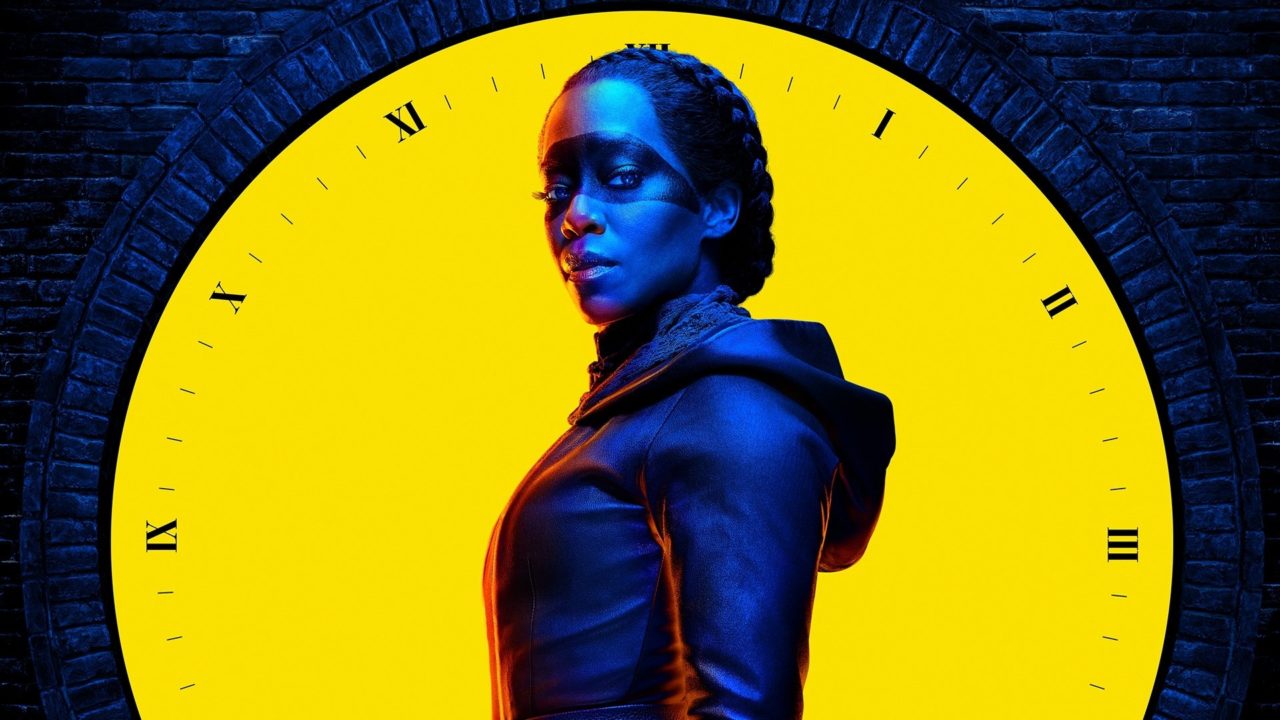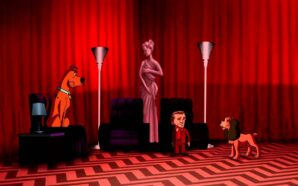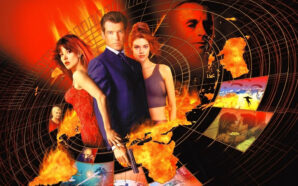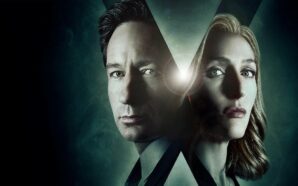“Nothing ever ends”.
Last year, HBO proved Dr Manhattan right with their risky sequel series to the acclaimed graphic novel Watchmen. Thankfully, it paid off. Watchmen managed to revere the source material while creating something fresh and imaginative unto itself, bringing the comic’s deep exploration of superheroes and politics into the present while exploring new themes of race and legacy across nine hours of the best television in years. The show has now been categorised as a miniseries with no second season planned. However, this isn’t the first time that writer Damon Lindelof has narrowed the focus of his Watchmen adaptation.
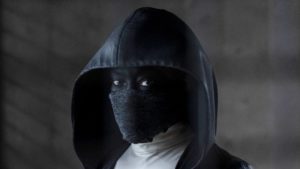 The series was originally to be composed of ten episodes but during the writing process Lindelof renegotiated with HBO, stating that he and the writers only needed nine to tell their story and that a tenth would just be “filler”. While the series is fantastic as it is, I do find myself wondering about this missing episode and what could have been explored in an extra hour of the show. We may never know the particulars about the story that never was but, upon rewatching the show, I’ve come to notice several aspects of Watchmen that would benefit from further development.
The series was originally to be composed of ten episodes but during the writing process Lindelof renegotiated with HBO, stating that he and the writers only needed nine to tell their story and that a tenth would just be “filler”. While the series is fantastic as it is, I do find myself wondering about this missing episode and what could have been explored in an extra hour of the show. We may never know the particulars about the story that never was but, upon rewatching the show, I’ve come to notice several aspects of Watchmen that would benefit from further development.
The graphic novel ends with an image that could throw the world into chaos and shatter the peace Adrian Veidt has done monstrous things to create: Rorschach’s journal being delivered to the New Frontiersman newspaper. The masked vigilante is killed to hide the truth and ensure peace, but his journal details at least part of Veidt’s plan and, if it’s at all legible, its publication could be monumental. And yet, in the show, it’s not. Overall, I don’t have a huge problem with this because the story the series chooses to tell is great, but the lack of consequences to the book being published is disappointing. The journal is mentioned only once or twice and the truth within is never commented on. It might as well have not been published in the world of the show.
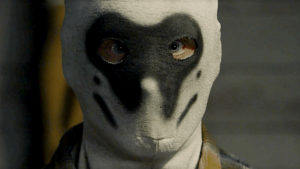 Even if the world thinks the journal is just the ramblings of a madman (and they wouldn’t be completely wrong) it would have been nice to actually have a scene detailing that fact. I like that what was is taken from the book – which is published by a far-right newspaper – is Rorschach’s fascism, leading to his image being appropriated by the Seventh Kavalry, but there are no real consequences to the journal being published. 7K apparently don’t even discover the truth from the book but from another source entirely – the tape Veidt makes for President Redford – and even then, it’s not what the story’s about. They are purely focused on Senator Keene becoming president, and later a new Dr Manhattan, for their racist agenda, not the conspiracy behind the interdimensional cephalopod. Maybe Rorschach’s truth being ignored is the whole point but I think the show should have addressed it more than it did, and such a scene in the eliminated extra episode could have been a possibility.
Even if the world thinks the journal is just the ramblings of a madman (and they wouldn’t be completely wrong) it would have been nice to actually have a scene detailing that fact. I like that what was is taken from the book – which is published by a far-right newspaper – is Rorschach’s fascism, leading to his image being appropriated by the Seventh Kavalry, but there are no real consequences to the journal being published. 7K apparently don’t even discover the truth from the book but from another source entirely – the tape Veidt makes for President Redford – and even then, it’s not what the story’s about. They are purely focused on Senator Keene becoming president, and later a new Dr Manhattan, for their racist agenda, not the conspiracy behind the interdimensional cephalopod. Maybe Rorschach’s truth being ignored is the whole point but I think the show should have addressed it more than it did, and such a scene in the eliminated extra episode could have been a possibility.
The series only skims the surface of the Watchmen universe thirty years later, dishing out worldbuilding details only when vital to the plot or naturally occurring in the world, and extra information thought up by the writer’s room was delivered each week via the HBO website in the form of the epistolary ‘Peteypedia’ , composed by Petey from the show. As a brief tangent, I just have to say how much I love that ‘Lube Man’ from episode 4 was never explained or returned to in the show. It was clearly Petey in that costume and the audience immediately understands everything about that character. Although, I guess a Lube Man episode could have been fun. But anyway, much of the Rorschach information was explained in that blog and I wish it had found its way into the show instead. Much of Peteypedia’ s content is perfect as the inessential additional material it is, but some should have been in the show, maybe in this fabled tenth episode.
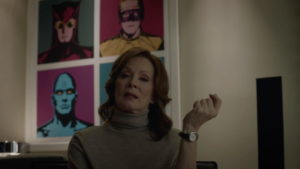 While the series concerns itself with a new batch of costumed heroes (if you can call them that) there are also appearances by legacy Watchmen characters, and it’s Laurie Juspeczyk who gets the short end of the stick. While she’s the lead in the brilliant third episode, Laurie is underutilised from then on, spending the finale tied to a chair or assisting Adrian. However, she then reveals that she’s had a drastic change of heart by the finale’s end and chooses to arrest Veidt for his crimes 30 years earlier, revealing to the world the truth behind the cephalopod attack. Her reasoning for this: “people change”. That’s it! She completes changes her mind and threatens the world peace the original story created for no clear reason. She says that people keep saying the world will end but it never seems to happen, and so gets some form of closure by bringing ‘The Smartest Man in the World’ to justice. But her decision is so quick and underdeveloped. I don’t have a problem with it as a plot point but it’s not set up at all. That’s were the extra episode could come in.
While the series concerns itself with a new batch of costumed heroes (if you can call them that) there are also appearances by legacy Watchmen characters, and it’s Laurie Juspeczyk who gets the short end of the stick. While she’s the lead in the brilliant third episode, Laurie is underutilised from then on, spending the finale tied to a chair or assisting Adrian. However, she then reveals that she’s had a drastic change of heart by the finale’s end and chooses to arrest Veidt for his crimes 30 years earlier, revealing to the world the truth behind the cephalopod attack. Her reasoning for this: “people change”. That’s it! She completes changes her mind and threatens the world peace the original story created for no clear reason. She says that people keep saying the world will end but it never seems to happen, and so gets some form of closure by bringing ‘The Smartest Man in the World’ to justice. But her decision is so quick and underdeveloped. I don’t have a problem with it as a plot point but it’s not set up at all. That’s were the extra episode could come in.
A tenth episode could have focused on Laurie feeling guilty about the lives lost on November 2nd 1985, especially with her spending time with Looking Glass, who’s been living with significant trauma since the event. Maybe even Looking Glass could be the one to initiate the arrest in the finale and Laurie has a debate with him about it, ultimately siding with him and going along with Veidt’s comeuppance rather than completely making the decision herself. I love that Looking Glass gets to go to Karnak and experience the truth behind the attack that has haunted him for decades, but he should have gotten more to do than vomit and goofily hit Adrian over the head with a wrench in his final moment onscreen. To offer motivation for her decision, Laurie could even talk about her feelings on Veidt’s actions over the phone with Dan Dreiberg – the imprisoned Nite Owl who doesn’t appear in the show. His absence isn’t a negative but, with an extra episode in play, a cameo would have been neat.
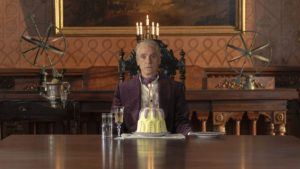 However, I think it makes much more sense for Veidt to give himself up and finally get the recognition he desires. It’s not enough for him to save the world; he needs everybody to know he did it – even if that means sacrificing the world peace he created in the first place. The newsie tells him he’s old news, Redford refuses to acknowledge him, and he fled to Europa to be treated like a God but it wasn’t enough. It’s clear he needs his self-proclaimed genius recognised and I think it would make more sense for him to give himself up than for Laurie to change her mind about him. Rewatching the show, it seems obvious that’s where his arc is taking him but the storyline stumbles at the final hurdle.
However, I think it makes much more sense for Veidt to give himself up and finally get the recognition he desires. It’s not enough for him to save the world; he needs everybody to know he did it – even if that means sacrificing the world peace he created in the first place. The newsie tells him he’s old news, Redford refuses to acknowledge him, and he fled to Europa to be treated like a God but it wasn’t enough. It’s clear he needs his self-proclaimed genius recognised and I think it would make more sense for him to give himself up than for Laurie to change her mind about him. Rewatching the show, it seems obvious that’s where his arc is taking him but the storyline stumbles at the final hurdle.
I’ll admit, most of my suggestions of what could fill an extra hour of Watchmen revolve around surplus scenes with minor characters I wish we had seen more of, albeit unnecessarily. There’s Pirate Jenny, who we know pretty much nothing about other than her name confirming that pirates are still prevalent popular culture characters like in the original comic (or the original comic-inside-a-comic to be more exact). Panda, who controlled access to the police’s weaponry and liked to gossip about the latest episode of American Hero Story. What was with the recurring images of Pandas throughout the series, anyway? I haven’t figured that out yet. And Red Scare, who I think would have been a fascinating subject to explore considering the Soviet Union is still around in the show’s version of 2019 and even a major ally of the US.
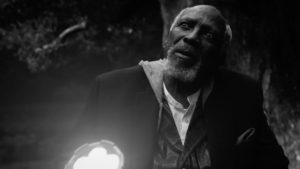 But one underexplored aspect of the series, which I do find potentially problematic, is the union of Will Reeves and Lady Trieu. Will – formerly Hooded Justice – has huge periods in his life that the audience isn’t privy to, and we leap straight from him forming an alliance with Dr Manhattan to 10 years later when he’s enacting the blue man’s plan while seemingly aligned with Lady Trieu. I wish we had witnessed the first meeting and exchange of information between Trieu and Reeves, especially how she reacts when he tells her the location of Manhattan. What lie did Will weave about how he knows Cal is Dr Manhattan? Did he sit around in Tulsa for a decade waiting until just a couple of days before the clock was complete to kill Judd Crawford? The details surrounding the deal are quickly explained in the finale and spending a little more time on Will and Trieu’s relationship could have cleared up the confusion that remains.
But one underexplored aspect of the series, which I do find potentially problematic, is the union of Will Reeves and Lady Trieu. Will – formerly Hooded Justice – has huge periods in his life that the audience isn’t privy to, and we leap straight from him forming an alliance with Dr Manhattan to 10 years later when he’s enacting the blue man’s plan while seemingly aligned with Lady Trieu. I wish we had witnessed the first meeting and exchange of information between Trieu and Reeves, especially how she reacts when he tells her the location of Manhattan. What lie did Will weave about how he knows Cal is Dr Manhattan? Did he sit around in Tulsa for a decade waiting until just a couple of days before the clock was complete to kill Judd Crawford? The details surrounding the deal are quickly explained in the finale and spending a little more time on Will and Trieu’s relationship could have cleared up the confusion that remains.
The reason we didn’t receive much information about the hidden plans-within-plans of the Manhattan/Will/Trieu arrangements was to preserve their mystery until the end. We only see Will and Lady Trieu together early in the season so they couldn’t gabble about their past without it spoiling what was to come. This makes me think that the extra episode should have come at the tail end of the season, allowing it to explain mysteries further rather than add to them. You could even split the finale into two, and I’m somewhat convinced that that was the original plan because, as it currently is, it feels like two distinct pieces. We spend the first 30 minutes catching up with Veidt and explaining his connection to Trieu, before flashing forward (and yet still back from the present of 2019) to detail his escape from Europa and arrival in Tulsa. The rest of the extended finale then focuses on the ensemble and wraps up the series, explaining the last few mysteries as it does so. These two disparate halves could have easily been episodes in their own right, allowing for more of Jeremy Irons’ wonderful performance as Veidt in the first, and more time to answer lingering questions in the second.
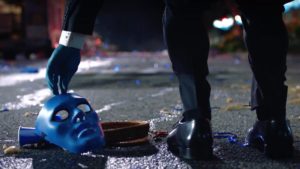 I have to say, I do very much love every episode of this show so it’s difficult to write these things which could be seen as negatives. Given the huge success of Watchmen, from critical acclaim, love from fans, and award nominations – much deserved after Lindelof’s previous series The Leftovers was consistently and unforgivably snubbed – the series clearly didn’t need an extra episode with added details, but I think it would have benefited slightly from further explored. That being said, if Lindelof doesn’t want a second season then I don’t want one either. The story has concluded and should remain that way, even if not every little detail was fully examined within. I don’t need to see if Angela walked on water or fell into the pool. Although, clearly, she did acquire the powers or Dr Manhattan wouldn’t have said she needed to see him walk on water in the penultimate episode. The ending isn’t as ambiguous as it may try to present itself, and I’ll take it as a definitive close to the show. But you know what they say, “Nothing ever ends”.
I have to say, I do very much love every episode of this show so it’s difficult to write these things which could be seen as negatives. Given the huge success of Watchmen, from critical acclaim, love from fans, and award nominations – much deserved after Lindelof’s previous series The Leftovers was consistently and unforgivably snubbed – the series clearly didn’t need an extra episode with added details, but I think it would have benefited slightly from further explored. That being said, if Lindelof doesn’t want a second season then I don’t want one either. The story has concluded and should remain that way, even if not every little detail was fully examined within. I don’t need to see if Angela walked on water or fell into the pool. Although, clearly, she did acquire the powers or Dr Manhattan wouldn’t have said she needed to see him walk on water in the penultimate episode. The ending isn’t as ambiguous as it may try to present itself, and I’ll take it as a definitive close to the show. But you know what they say, “Nothing ever ends”.
If Watchmen had an extra episode what would you have liked to have seen it focus on? Do you want to see the show return for a second season despite Damon Lindelof’s departure? Let me know in the comments and be sure to geek out with me about TV, movies and video-games on Twitter @kylebrrtt.




